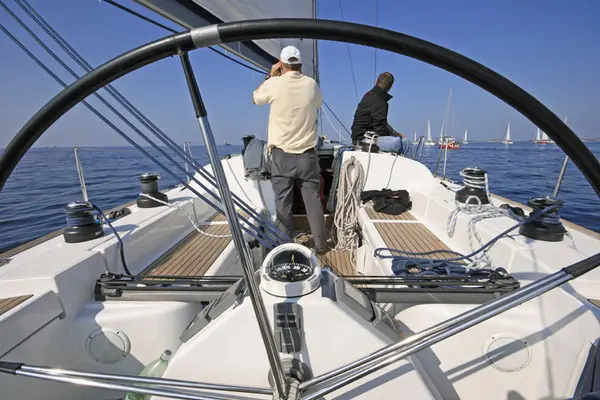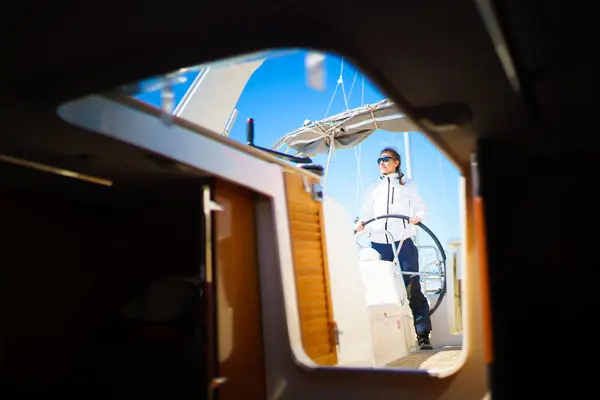What kind of boat licence do I need and in which countries are my "papers" valid? Perhaps no other question arouses so much interest in yachting discussions. Therefore, we have prepared a detailed overview that addresses all aspects related to acquiring and validating skipper's licences, including the specifics of where and how to take the skipper's exam.
Let's start by exploring the different types of licences available and, more importantly, the specific rules that apply in each destination.
Which skipper's licences are internationally recognised?
No skipper's licence is universally recognised in every country. There is no global standard for the training and certification of skippers, and mutual recognition of these licenses varies, even within the European Union.
We are therefore more interested in the legal norms of individual countries than in the type of licence itself. In general, it is up to each country to decide whether to accept a licence issued in another country on its territory.
This acceptance is often governed by the "law of the flag" principle, which dictates that as long as a skipper holds a licence from the country under whose flag the yacht is registered, there should be no issue. However, whether another country's licence is accepted falls to the discretion of the country where the yacht is moored.
This principle generally applies only within a country's territorial waters, as most states enforce local laws regardless of the boat's registration or flag.
The Department of Transport often negotiates the recognition of national licences with other states, and the policies of charter companies also significantly influence this process. Let's take a look at how different countries handle licences in practice and examine the various types of certifications available.
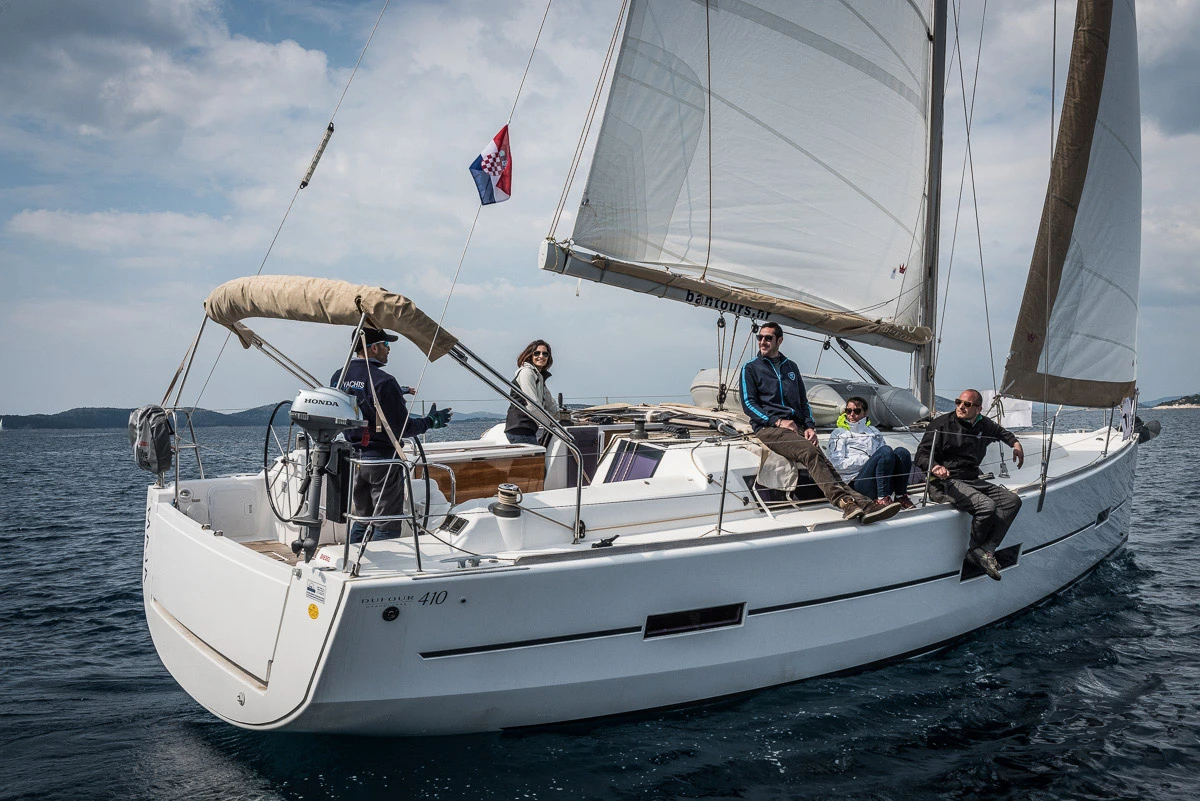 Dufour 410 sailing under the Croatian flag, adhering to the "law of the flag" principle
Dufour 410 sailing under the Croatian flag, adhering to the "law of the flag" principle What kind of boat licence do I need?
When deciding on the type of boat licence you should have, your choice largely depends on your sailing destination and how serious you are about sailing. Here are some options:
- Local Licences: Start by exploring the licensing options available in your own country. If you’re unsure about the validity of your licence for international waters or specific countries where you intend to charter, our customer service team can provide you with the necessary help.
- British RYA Licence: For those looking for a more widely recognised certification, the British Royal Yachting Association (RYA) licence is a prestigious option that enjoys global respect and is valid indefinitely.
- Croatian Licence: If you plan to sail in Croatia, consider obtaining a Croatian licence. Note that this licence is only valid within Croatian waters, and the examination is conducted in English.
- Radiotelephony Certificate (VHF/SRC): Supplementing your licence with a VHF radiotelephony certificate can be beneficial, especially in countries like Croatia where it is a requirement. This certificate is usually issued by the national authority responsible for radio communications.
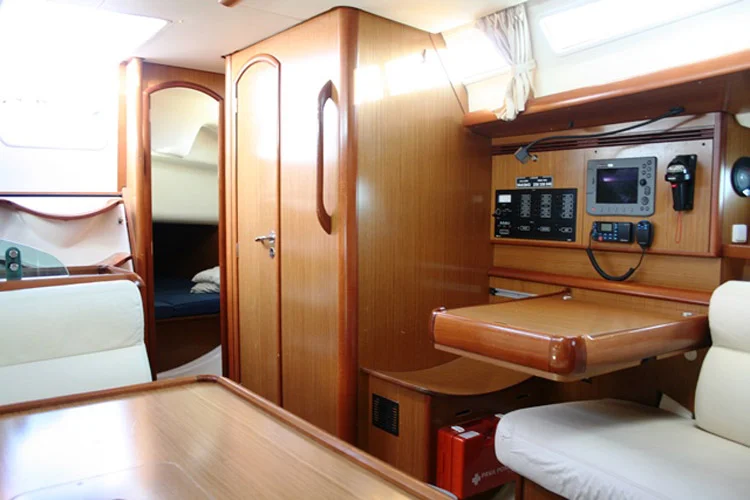 Radio on board the ship
Radio on board the ship What are the specific requirements for skipper licences in each country?
The requirements for skipper licences can vary significantly from one country to another, often influenced by local maritime laws and the customary practices or "experience" law prevalent in the charter industry. Here’s a breakdown of the specific requirements in a few key sailing destinations:
Croatia
- General Requirements: Croatia recognizes its own national skipper licences. Additionally, anyone sailing in Croatian waters must also have a radiotelephony certificate, which is typically included with the Croatian skipper's licence.
- Boat Categories: Croatia differentiates between a "boat" (up to 15 metres as of the 2019 amendment) and a "yacht" (over 15 metres).
- Licences for Larger Boats: For boats over 30 gross tonnage (GRT), typically catamarans longer than 42 feet, a higher-level licence is required. Basic Croatian B and C licences, or similar foreign licences are insufficient.
Italy
- Strict Requirements: Skippers must hold a licence issued by their country of citizenship or by Italy itself. Foreign licences, including popular ones like the British RYA, may not be recognized, leading to potential fines during inspections. Be careful, because some charter companies will sometimes rent a boat even with these licences.
- No Radiotelephony Certificate Required: Unlike Croatia, Italy does not require a radiotelephony certificate for sailing.
Greece
- Multiple Licences: Greece often requires at least two licensed individuals aboard. Charter companies might accept written proof of a captain’s experience and an affidavit confirming a crew member's ability to assist.
- Croatian Licences: Typically, Croatian licences are not recognized in Greece.
Tropical destinations
- Additional Documentation: In more exotic sailing locations, a Skipper CV detailing previous sailing experiences, locations, and dates is often required by charter companies. This CV helps verify the skipper’s competency beyond just holding a licence. At yachting.com, we can help to successfully complete these formalities.
For new customers, we always inquire about the type of licence they hold. If there are any uncertainties, we verify the licence's acceptance with the specific charter company we are coordinating the boat rental with. This helps ensure that our customers avoid any disappointments or complications during their charter experience.
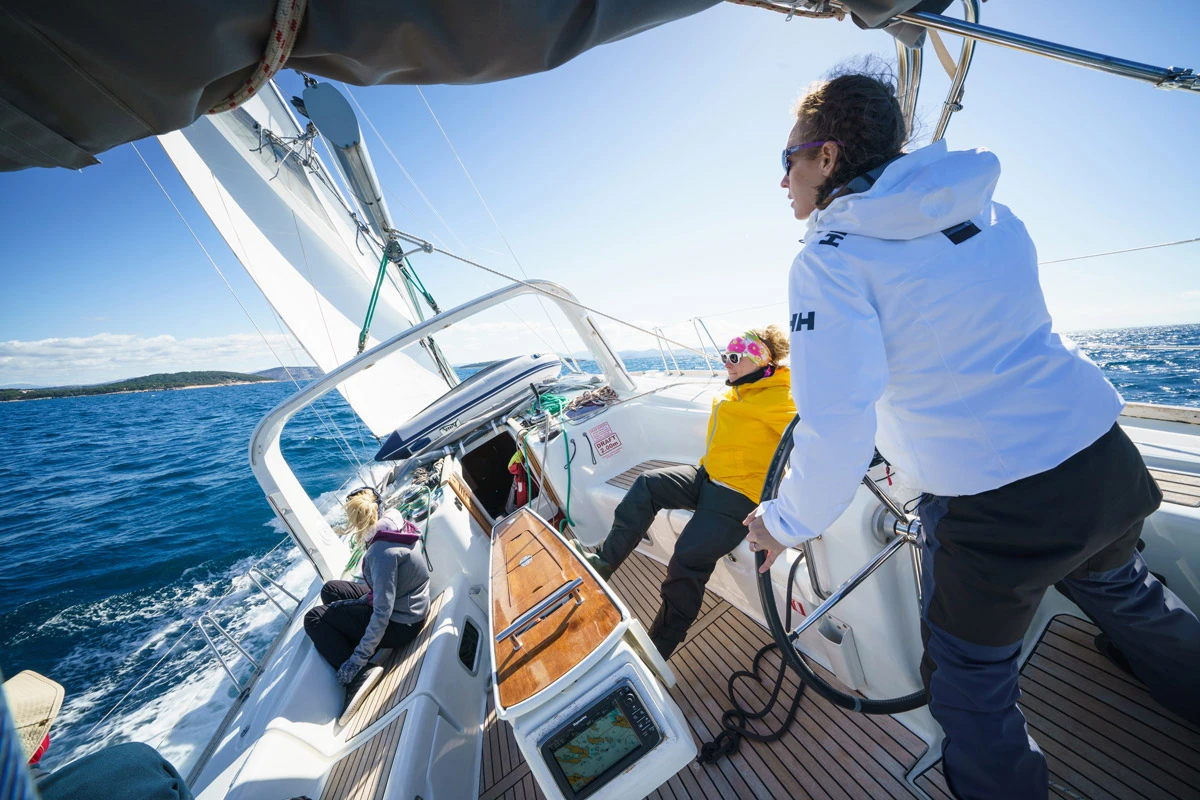 Crewed cruise in Croatia
Crewed cruise in Croatia 
